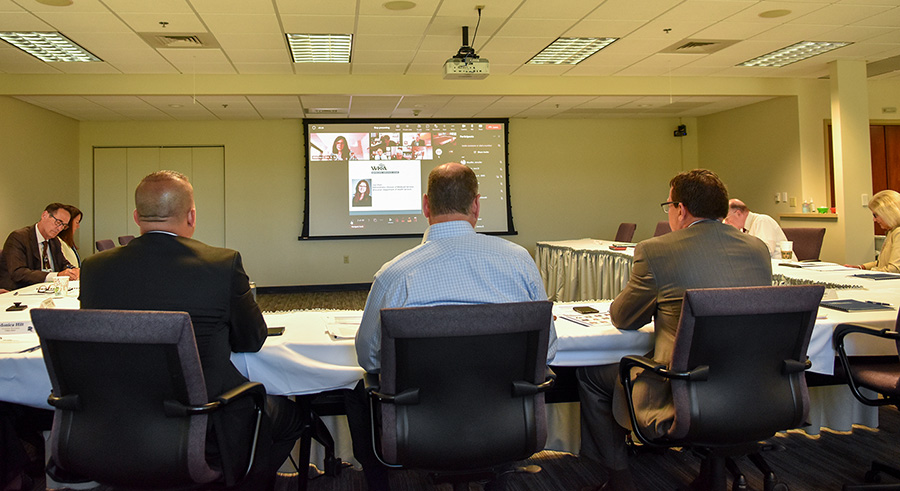In his review of WHA’s progress toward its stated goals for 2022 at the association’s June 23 board meeting, President and CEO Eric Borgerding made specific reference to WHA’s continued prioritization of the challenges related to a shortage of post-acute and long-term care beds in the state and the delays this shortage causes to hospital discharges. The reference forecasted a spirited discussion that would follow between WHA board members and Wisconsin Department of Health Services (DHS) Division of Medicaid Services Administrator Lisa Olson.
“No End in Sight”
In opening remarks to the group, Olson outlined her division’s initiatives aimed at ensuring that patients in Wisconsin receive the right care in the right place at the right time. The division, she noted, is focused on expanding home- and community-based care to give patients and families a choice in where they receive care. Aging and Disability Resource Centers (ADRCs) throughout Wisconsin offer help to families seeking the best options for post-acute and long-term care, Olson explained, encouraging hospital representatives to tap these resources to coordinate care in their areas.
 Wisconsin Department of Health Services Division of Medicaid Services Administrator Lisa Olson heard from WHA members about how the unavailability of staffed skilled nursing home beds is delaying hospital discharges and affecting hospital capacity.
Wisconsin Department of Health Services Division of Medicaid Services Administrator Lisa Olson heard from WHA members about how the unavailability of staffed skilled nursing home beds is delaying hospital discharges and affecting hospital capacity.
With greater home- and community-based care available to patients, the result is higher acuity within institutional care settings, Olson explained. She added that the state’s Medicaid reimbursement model for institutional members is based on the level of acuity of the patients they serve.
Olson indicated she is well aware of the challenges hospitals face in discharging patients to post-acute care facilities. She went on to provide an update on the competitive request for services for DHS’s Long-term Care Industry Study. Olson said DHS hopes to gain a broad perspective among wide-ranging stakeholders to devise and implement the best solution for patients needing long-term care statewide.
Borgerding suggested that such a collaborative approach would need to consider the current limitations under the state’s nursing home bed cap and related rules, improvements to the guardianship process and the impact of reimbursement levels and methods.
Bellin Hospital CEO Chris Woleske shared that her hospital logged 396 avoidable days in May alone due to an inability to transfer patients and called for a collaborative effort to identify and solve common challenges faced by hospitals statewide. “There’s no end in sight,” she lamented. Froedtert Health CEO Cathy Jacobson agreed that “every bed occupied by someone who doesn’t need to be there is a crisis,” particularly for hospitals at or near capacity.
HSHS Wisconsin CEO Andrew Bagnall commented, “We need to think of alternative means to care for these patients, because this isn’t going to be solved anytime soon.”
Board chair and Prairie Ridge Health CEO John Russell thanked Olson for her willingness to work with WHA members on this long-standing challenge. Borgerding closed the discussion by noting the strong relationship WHA has with DHS leaders that allows for the collaboration needed to tackle such critical issues.